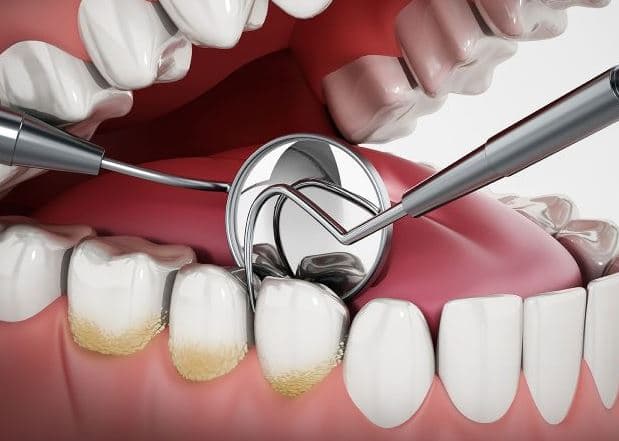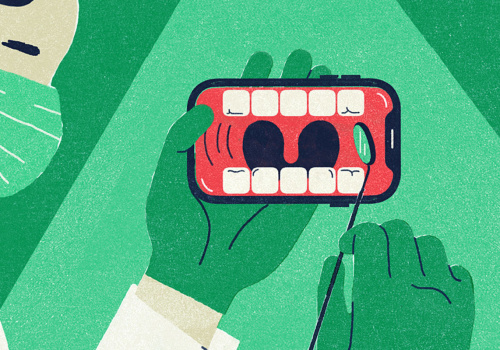We've all wondered at what age our little ones should start seeing the dentist. Well, the answer might surprise you. It's recommended that children have their first dental visit by the age of one or within six months of getting their first tooth.
Regular dental check-ups can help prevent tooth decay and promote good oral health from an early age. So, let's dive into why early dental care is essential for our kids' bright smiles.
TLDR
- It is recommended to have a child's first dental visit by age one or within six months of their first tooth.
- Regular dental check-ups help prevent tooth decay and promote good oral health in children.
- Early dental care allows for the detection and prevention of common pediatric dental issues.
- Parents should actively be involved in their children's oral health and establish good dental care habits early on.
What Age Should Kids Go to the Dentist
When it comes to dental care for babies, it's important to start early. Regular dental check-ups should begin around the age of one, and continue every six months thereafter.
These check-ups not only help maintain oral health, but also allow for early detection and prevention of common pediatric dental issues.
As parents, it's crucial for us to be actively involved in our children's oral health, promoting good habits and providing guidance for proper dental care.
Dental Care for Babies
When it comes to dental care for babies, it's essential to understand the importance of baby teeth and the role they play in a child's development. Baby teeth help with chewing, speaking, and holding space for permanent teeth.
To ensure healthy oral hygiene, it's crucial to establish good habits early on. This includes gently cleaning a baby's gums with a soft cloth or infant toothbrush. It's also important to avoid giving them sugary drinks or snacks, as these can contribute to tooth decay.
Taking care of baby teeth sets the foundation for good dental health in the future. By establishing good habits early on, parents can help ensure their child's teeth develop properly and avoid potential dental problems later on.
The Importance of Baby Teeth
Our children's baby teeth play a crucial role in their oral development. Establishing good oral health habits early on is essential for their overall well-being.
The teething process, which usually begins around six months of age, marks the perfect time to introduce them to dental care. Their first dental visit should ideally occur by their first birthday.
By starting early, we can create a dental hygiene routine, prevent cavities, and educate them about the importance of oral health.
Teething remedies and proper oral health education can help ensure healthy baby tooth loss and promote a lifetime of good oral health.
Dental Hygiene Tips for Infants
As parents, we should prioritize dental hygiene for our infants by introducing them to proper oral care practices from an early age. Infant teething can begin around 6 months, so it's important to start taking care of their gums even before their first tooth erupts. Use a clean, damp cloth or a soft infant toothbrush to clean their gums after feedings.
When the first tooth appears, you can start using infant toothpaste and a small, soft-bristled toothbrush. Remember to monitor teething signs and symptoms and provide teething remedies like teething toys to alleviate discomfort.
Regular dental visits and using appropriate infant dental products will contribute to their overall oral health and prevent issues like baby bottle tooth decay.

Dental Check-ups and Frequency
During a pediatric dental check-up, the dentist will examine your child's teeth and gums, looking for any signs of decay, cavities, or other dental issues. They may also clean and polish their teeth, apply fluoride treatment, and provide guidance on proper oral hygiene practices.
Scheduling regular dental appointments for your child is important to maintain their dental health and catch any potential problems early on.
What Happens During a Pediatric Dental Check-up
Let's dive into what typically occurs during a pediatric dental check-up. These appointments are essential for maintaining your child's oral health and preventing dental problems.
The dentist may perform various pediatric dental procedures, such as dental X-rays to assess tooth development and detect any potential issues. They may also provide fluoride treatments to strengthen the teeth and dental sealants to protect against cavities.
The dentist can offer teething remedies, recommend oral hygiene products, and provide tooth brushing techniques and dental flossing tips to ensure proper oral care at home.
Scheduling Regular Dental Appointments
We usually set up regular dental appointments for our kids to ensure their oral health is maintained and any potential dental issues are detected early.
It's important to start baby dental care early, with the first dental visit recommended around the age of one. Regular check-ups allow the dentist to monitor the child's teeth and gums, address any teething troubles, and provide preventive treatments such as dental sealants and fluoride treatments.
We can also discuss habits like thumb sucking and pacifier use, along with proper toothbrushing techniques and flossing for kids to prevent cavities.
Common Pediatric Dental Issues
When it comes to common pediatric dental issues, there are several important points to consider.
First, tooth decay in children is a prevalent problem that can be prevented with proper oral hygiene and regular dental check-ups.
Second, orthodontic assessments are essential to identify any alignment issues and address them early on.
Lastly, speech and oral development can be impacted by dental problems, so it's crucial to address any issues promptly.
Tooth Decay in Children
Tooth decay poses a significant risk to children's oral health, and regular dental check-ups starting at a young age are crucial for prevention and early intervention. Here are three important aspects to consider when it comes to tooth decay in children:
- Tooth decay prevention: Implementing good oral hygiene practices and establishing a routine of brushing and flossing can help prevent cavities in children.
- Dental sealants and fluoride treatments: These preventive measures can provide an extra layer of protection against tooth decay.
- Baby bottle tooth decay and oral care: Proper cleaning of baby's gums and teeth, avoiding sugary drinks in bottles, and encouraging regular dental visits can prevent tooth decay in infants and toddlers.
Orthodontic Assessments
Addressing orthodontic assessments is essential when considering the age at which kids should go to the dentist, as it allows for early detection and intervention of potential dental issues.
Early intervention is crucial in preventing and treating bite problems and dental misalignment. Orthodontic treatment, such as braces for kids, can help correct dental alignment and promote healthy jaw growth.
Orthodontic evaluations, which may involve the use of orthodontic appliances, play a vital role in identifying and addressing these issues at an early stage.
Speech and Oral Development
As parents, we need to understand how speech and oral development are influenced by the age at which kids should go to the dentist. Here are three important points to consider:
- Teething Remedies: Proper dental care from an early age can help alleviate discomfort during teething, which may impact speech development.
- Oral Habits: Prolonged pacifier use or thumb sucking can affect oral motor skills and lead to speech delays.
- Tongue Tie: Identifying and addressing tongue tie early on can prevent issues with tongue thrust and speech development.
Understanding these factors can help parents ensure their child's speech and oral development are on track.
Parental Involvement in Children's Oral Health
When it comes to ensuring our children's oral health, there are several key areas where parental involvement plays a crucial role.
First and foremost, choosing the right toothpaste and toothbrush is essential to their dental care routine.
We should also pay close attention to their nutrition, as what they eat can greatly impact their dental health.
Lastly, it's our responsibility to encourage and teach them good oral hygiene habits from a young age, setting them up for a lifetime of healthy smiles.
Choosing the Right Toothpaste and Toothbrush
We should make sure to pick out the right toothpaste and toothbrush for our children's oral health. Here are three important factors to consider:
- Toothpaste selection: Look for toothpaste with age-appropriate fluoride content.
- Toothbrush bristle: Choose a soft-bristled toothbrush to protect their delicate gums.
- Brushing techniques: Teach proper brushing techniques and encourage regular flossing habits.
By selecting the right dental care products, such as age-appropriate toothpaste and a soft-bristled toothbrush, and promoting good brushing and flossing habits, we can ensure our children's oral health is well taken care of.
Additionally, consider the benefits of using an electric toothbrush, and remember to provide proper dental care during teething.
Nutrition and Its Impact on Dental Health
Our children's dental health is greatly influenced by the nutrition choices we make. The impact of nutrition on oral health can't be overstated.
The dietary habits and eating habits of our children play a crucial role in cavity prevention and dental health. A healthy diet, low in sugar intake, is key to preventing dental decay and dental caries.
As parents, it's important for us to educate ourselves and our children about the importance of good nutrition for maintaining optimal dental health.
Encouraging Good Oral Hygiene Habits
As parents, let's make it a priority to instill good oral hygiene habits in our children from an early age.
Here are three essential tips to help you encourage good oral hygiene in your kids:
- Teach them good brushing techniques: Show your children how to brush their teeth properly, using gentle circular motions and reaching all areas of their mouth.
- Provide flossing tips: Teach your kids the importance of flossing daily and show them how to do it correctly, guiding them through the process until they can do it on their own.
- Prevent cavities with dental sealants and fluoride treatments: Talk to your child's dentist about the benefits of dental sealants and fluoride treatments to protect their teeth from decay.
By following these tips and incorporating teething remedies, such as teething toys, while discouraging thumb sucking and pacifier use, you can set your child on the path to a lifetime of good oral health.
Early orthodontic intervention can also help address any potential dental issues before they become more serious.
Frequently Asked Questions
How Often Should Kids Go to the Dentist?
We should ensure regular dental check-ups for kids to maintain good dental hygiene and prevent common dental problems. Dental sealants and fluoride treatment offer added protection. Teaching proper brushing and flossing techniques and choosing a dentist who specializes in children's dental care can make visits less stressful. A healthy diet also plays a crucial role in children's dental health.
What Types of Dental Treatments Are Typically Performed for Kids?
Common dental procedures for kids include preventive dental care, dental sealants, fluoride treatments, filling cavities, orthodontic options, and treating baby teeth problems. Sedation options are available, as well as special considerations for children with special needs.
Can Kids Go to Any Dentist or Should They See a Pediatric Dentist?
Seeing a pediatric dentist offers many benefits, such as specialized knowledge in treating children, a child-friendly environment, and addressing common dental issues in kids. Finding a reliable pediatric dentist and making dental visits less stressful are important for long-term oral health.
Are Dental X-Rays Necessary for Children?
Dental x-rays can be necessary for children, as they help identify dental issues and ensure proper oral health. However, there are alternatives available and age considerations to keep in mind. It's important to choose a pediatric dentist who understands dental anxiety and provides preventive care and hygiene tips for kids.
How Can Parents Prepare Their Kids for a Dental Visit?
When preparing kids for a dental visit, parents can manage dental anxiety by choosing a kid-friendly dentist, explaining the importance of dental health, and building good oral hygiene habits.







